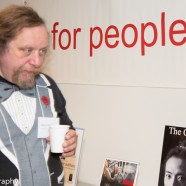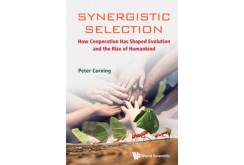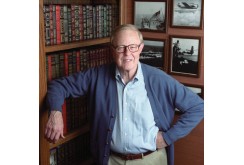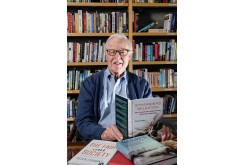
SYNERGY
Timing is everything, in science just as much as in horseracing or playing the stock market. If Alfred Russell Wallace had published before Darwin, we would talk about Wallace’s Theory of Evolution today.
For Peter Corning, the fateful book was Richard Dawkins’ “The Selfish Gene.” Just the name provided a simple metaphor for understanding evolution that precisely encapsulated the idea of “The Me Generation” of the 1980s, leaving little oxygen in the room for Corning’s alternative metaphor: synergy.
“Back in 1983, when my first book, The Synergism Hypothesis, was published,” Corning said, “evolutionary theory was gene-focused, and there was little interest in the problem of explaining complexity in evolution. The very word synergy was unfamiliar to many biologists.”
While the “selfish gene” is focused on competition among individual genes and driven by what a particular gene can or cannot do in the environment, Corning instead proposed focusing on the synergies that give genes, organisms and groups an evolutionary advantage. This approach had a hard time gaining traction. Now, his time has come.
“Over the past two decades, complexity has become a major theme, so, the tide has finally changed for this theory,” Corning said. Synergy, he argues, is key to the evolution of complexity. And Corning sees synergy as more than just a way of describing evolutionary biology.
“Over a five- to seven-million-year period, the progressive evolution of humankind has been a process that has involved close cooperation, various kinds of behavioral innovations and inventions, and synergies [that] enabled our ancestors to survive, to reproduce successfully, and to evolve over time,” he said. “Cooperation and synergy are, in fact, the key to understanding a complex, modern, global society.”
Cooperation and the mutual benefits that flow from it, not individual competition and one-upsmanship on the genetic level, form the basis of evolutionary progress, according to Corning. Just as the Selfish Gene became a metaphor for the get-it-while-you-can ethos of the last century, he believes synergy has to be the new paradigm to solve the problems of this century.
For more than 30 years Manny Frishberg has been a professional journalist and writer. He wrote feature articles on a range of topics, from high tech and business to alternative energy, health, medicine and social activism, for numerous regional and nationally distributed print media, as well as websites and online publications.
















